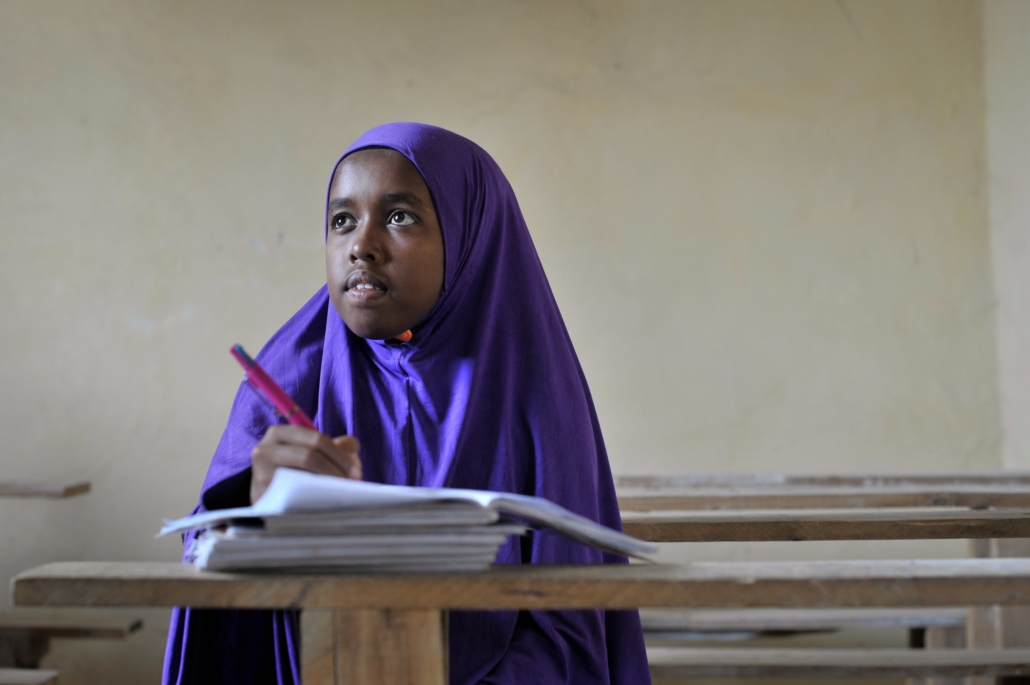ZanaAfrica is Helping Girls in Africa Stay in School

Puberty is a difficult time of life for many adolescent girls worldwide. During puberty, girls may face numerous challenges such as abuse, sexual harassment, unplanned pregnancy and early marriage, all of which pose a threat to their health and psychological well-being. When girls lack the knowledge and tools to navigate puberty safely, these challenges become even more difficult. For girls in Africa, this time can be particularly challenging. However, ZanaAfrica Foundation is an NGO in Kenya helping to provide girls with health education as well as menstrual supplies to help them navigate their periods and stay in school.
Menstruation Myths
Misconceptions about menstruation are common in many communities around the world. In these areas, many consider being female and having a period as shameful and suspicious. A girl’s first period is often a miserable time because of stigma in the local society. At least 50% of adolescent girls in Ethiopia do not receive any information about menstruation before their first periods. The belief is that when girls begin menstruating, they are no longer virgins. At times, some parents punish girls because they believe their periods began as a result of their daughters having sex. The Asembo in Kenya believe that a daughter who is menstruating should not sleep in her mother’s home because the young person is unclean. Myths such as this can make girls in Africa feel unaccepted by their mothers and their communities.
In East Africa, 80% of all girls have no access to health education or sanitary pads. Meanwhile, in Kenya, two out of three girls are unable to access menstrual products regularly. Many girls use homemade cloths or rags, but these solutions can lead to infection, and often they are not very effective. Due to shame and fear, many girls do not attend school when menstruating. In seventh grade, the proportion of girls dropping out of school is 7.1% in comparison to boys at 6.8%. In eighth grade, the dropout gap widens by 0.7%.
Obtaining an education is key to avoiding the grind of poverty, so the girls can get jobs upon graduation. Missing school because of menstruation leads to girls not graduating, thereby consigning girls in Africa to a lifetime of lower-paying work or worse, no paying work. A 2015 study in Kenya revealed that one out of 10 girls engaged in transactional sex in order to obtain menstrual pads.
ZanaAfrica
ZanaAfrica is a nonprofit based in Kenya that focuses on girls’ education and healthcare. The organization works to disseminate information and menstrual products, to keep young women from dropping out of school and thereby avoid eventual poverty. ZanaAfrica’s research shows that healthcare information and menstrual pads win back 75% of learning days at school.
ZanaAfrica leads a global advocacy effort to break the taboo around menstrual periods. Deeply engrained taboos, as well as the lack of communal rites-of-passage that once supported girls during adolescence, leave girls to navigate puberty on their own. Young girls can enter situations in which they receive pressure to have sex or another person touches them inappropriately, but they do not realize that they have the right to say no. As a result, 20% of Kenyan girls ages 15-19 are pregnant, 60% quit before finishing high school and 66% of new HIV infections are in adolescent girls in Africa.
The Publication, “Nia Teen”
To help counter the rising tide of unwanted pregnancy, disease and leaving school, which creates a vicious cycle of poverty, ZanaAfrica publishes a health magazine called “Nia Teen.” Its goal is to improve the health and agency of girls living in the worst informational and economic poverty. The organization has also created a 24-session facilitated health education curriculum.
“Nia Teen” draws from a database of more than 10,000 questions from 1,000 girls. Each issue intends to create behavior change as well as knowledge retention. The publication gives guidance, affirmation and information about menstrual health and puberty. It also celebrates real girls’ accomplishments and features their heroes. A comic in the magazine demonstrates healthy decision-making and comes with a discussion guide. ZanaAfrica believes that when girls receive honest answers to their questions, they gain the confidence to realize their potential and affirmation of their voices. When girls learn about reproductive health, they are better able to make decisions and are more likely to make positive choices for their future.
ZanaAfrica’s Impact
Over the past four years, ZanaAfrica has worked with partners across Kenya to provide over 10,000 girls per year with cotton underwear and sanitary pads, as well as reproductive health education. Since 2013, it has impacted nearly 50,000 girls with the tools they need to thrive. In 2015, ZanaAfrica received a $2.9 million four-year research grant from the Bill & Melinda Gates Foundation to test the impact of its health education interventions and menstrual pads on health, safety and education for girls in Africa.
COVID-19’s Impact on Girls in Kenya
With Kenyan schools closed until 2021 due to COVID-19, millions of girls are dealing with challenges that the pandemic has worsened. Girls who are not in school are at increased risk for anxiety, depression, pregnancy, sexual violence and ongoing trauma. Support for groups like ZanaAfrica is more crucial than ever since COVID-19 has made it even more difficult for girls in Africa to stay safe.
– Sarah Betuel
Photo: Flickr
